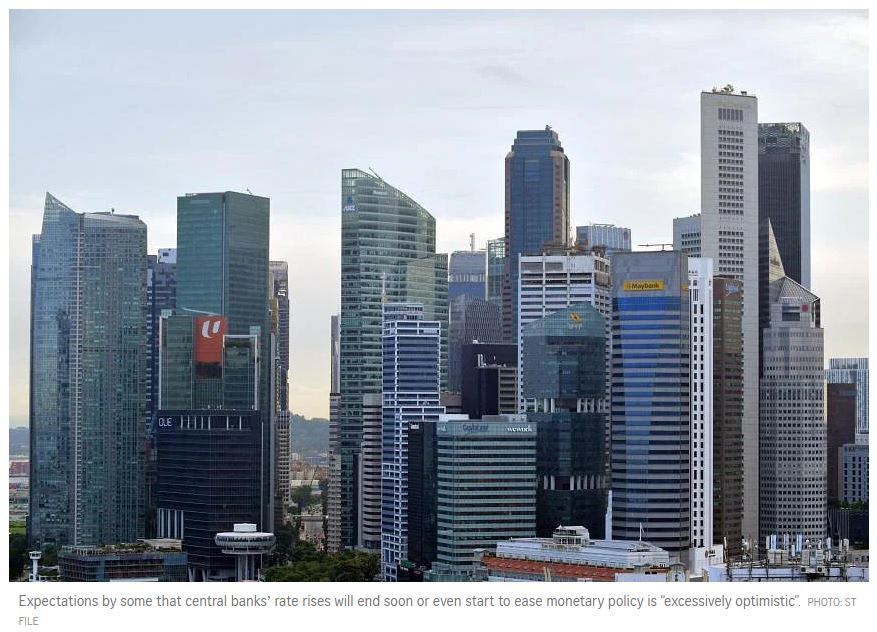Singapore: Monetary policy tightening still on the cards for central banks: MAS’s Ravi Menon
SINGAPORE – Headline inflation appears to have hit its peak and central banks have slowed interest rate rises but there are still “some ways to go”, noted Singapore’s central bank chief on Thursday.
Monetary Authority of Singapore managing director Ravi Menon said expectations by some that rate rises will end soon or even start to be eased is “excessively optimistic”.
Mr Menon told a conference held by the Investment Management Association of Singapore and Bloomberg that the key driver of risk in the short term is the trajectory of interest rates, which depend on the inflation outlook and the monetary policy response.
Global headline inflation seems to have peaked, averaging 5.6 per cent in the fourth quarter of 2022, down from 6 per cent in the third quarter, he added, noting that this was led by the sharp fall in food, energy and logistics costs.
But inflation is well above the 2.5 per cent average recorded in the decade before Covid-19, Mr Menon pointed out.
Central banks in the United States, Europe and Britain have hiked rates by 25 to 50 basis points this year compared with the 50 to 75 basis point rises last year.
Mr Menon also noted getting inflation back into central banks’ target bands hinges not just on monetary policy but on labour market dynamics, China’s re-opening and a surge in food and energy prices.
“Ultimately, so long as labour shortages continue, prices will edge higher compounding the pressure on central banks to hike further later this year,” he said.
A stronger-than-expected infrastructure-led rebound in China could also add more global inflation risks, as would a fresh shocks to food and energy prices, Mr Menon added, noting also that in the medium-term, geo-economic fragmentation is the key driver of returns and risks in financial markets.
Rising tension between the US and China have already resulted in higher trade barriers, tighter cross-border investment restrictions and greater domestic production of goods deemed to be strategically important.
“The result of all this geo-economic fragmentation is most likely slower global growth,” noted Mr Menon.
A World Trade Organisation study last year found that a full technological decoupling from 2020 to 2040 would mean a gross domestic product loss of 8 to 12 per cent in individual countries.
“In short, no country will emerge unscathed with rising geo-economic fragmentation, with emerging market economies set to bear the brunt of reduced trade and capital mobility,” he said.
Education Minister Chan Chun Sing noted at the conference that the greater the dangers of a fragmented world, the greater challenge it is to be able to build strategic trust with all sides and be a “principled partner”.
“During the depth of the crisis, many countries, if you like, nationalised the assets of other people in order to fulfill their domestic needs. In Singapore, we have never done that. Even at the depth of the crisis, we kept our system open,” he said.
Mr Chan told the 300 or so people at the event that Singapore’s competitive edge is the ability to provide investors a stable environment but the country has to ensure that as technology and business models evolve, its rules must be progressive and facilitative.
It is why Singapore is creating the conditions to allow all investors to do three things – mobilise capital, aggregate talent and protect intellectual property, Mr Chan said. “If we continue to do these three things well, I think we will be able to find a niche for ourselves, even in a troubled world.”
Source: https://www.straitstimes.com/business/monetary-policy-tightening-still-on-the-cards-for-central-banks-mas-s-ravi-menon


 Thailand
Thailand




